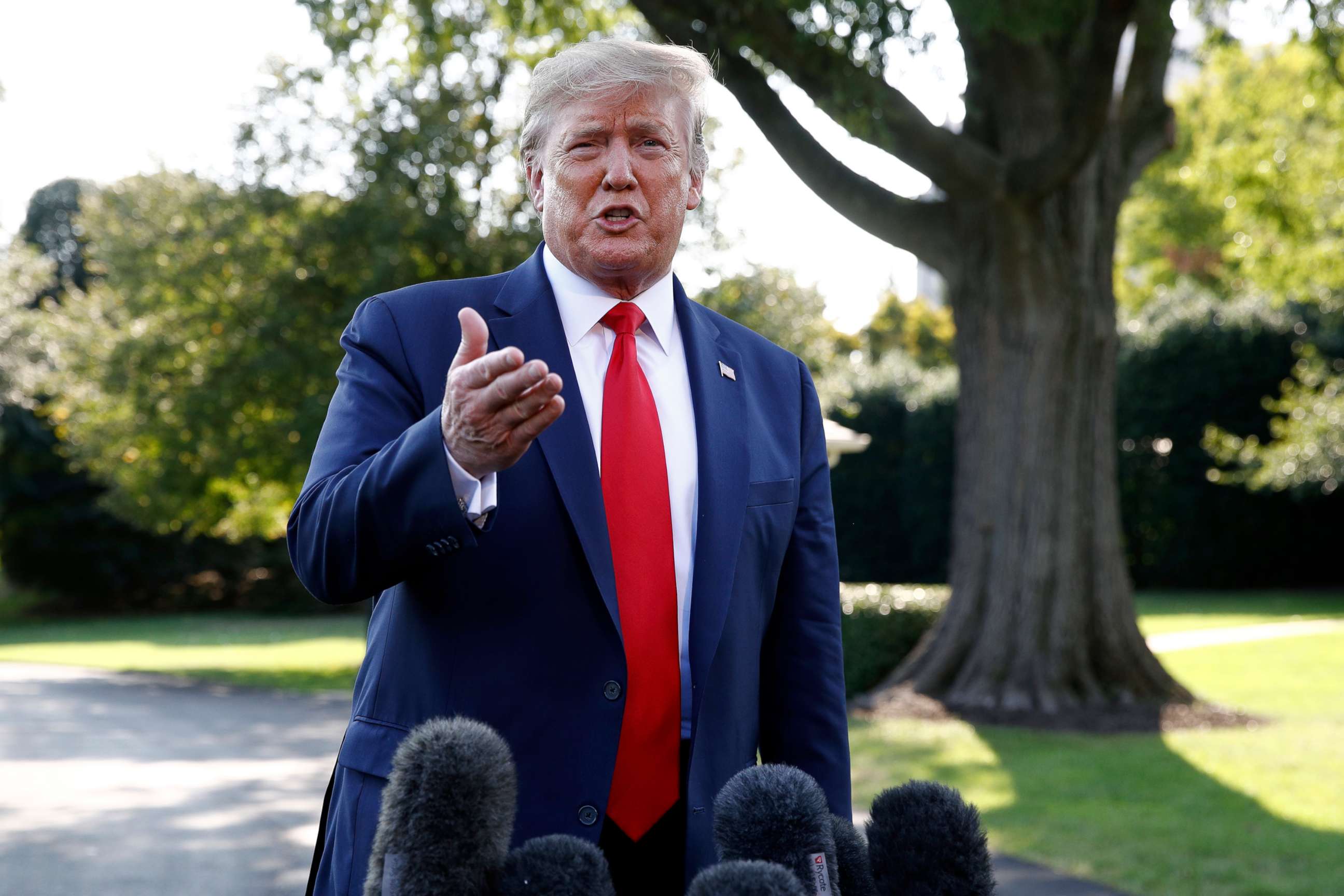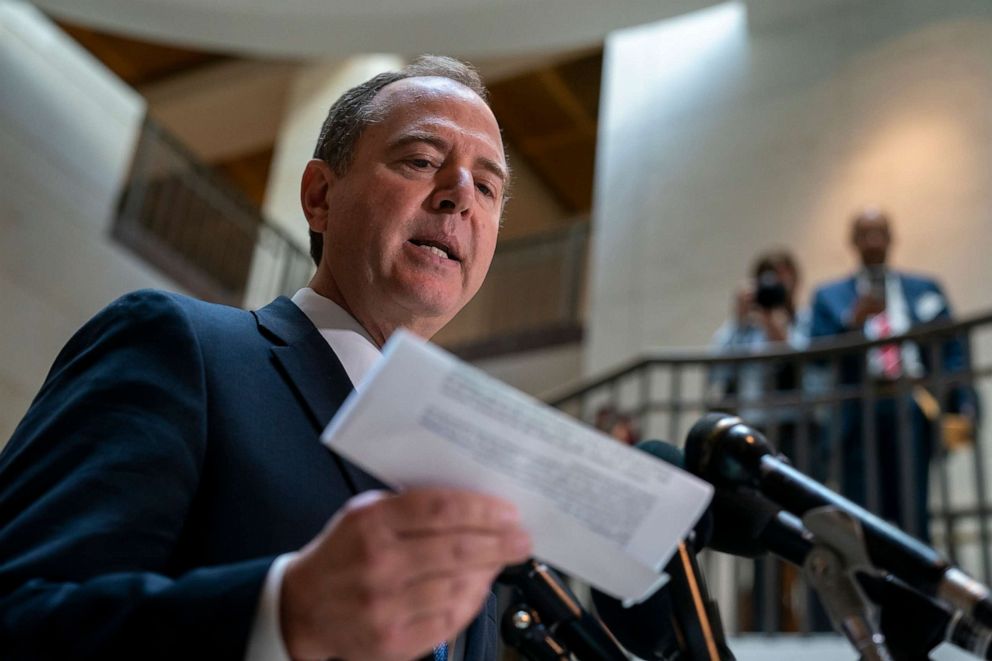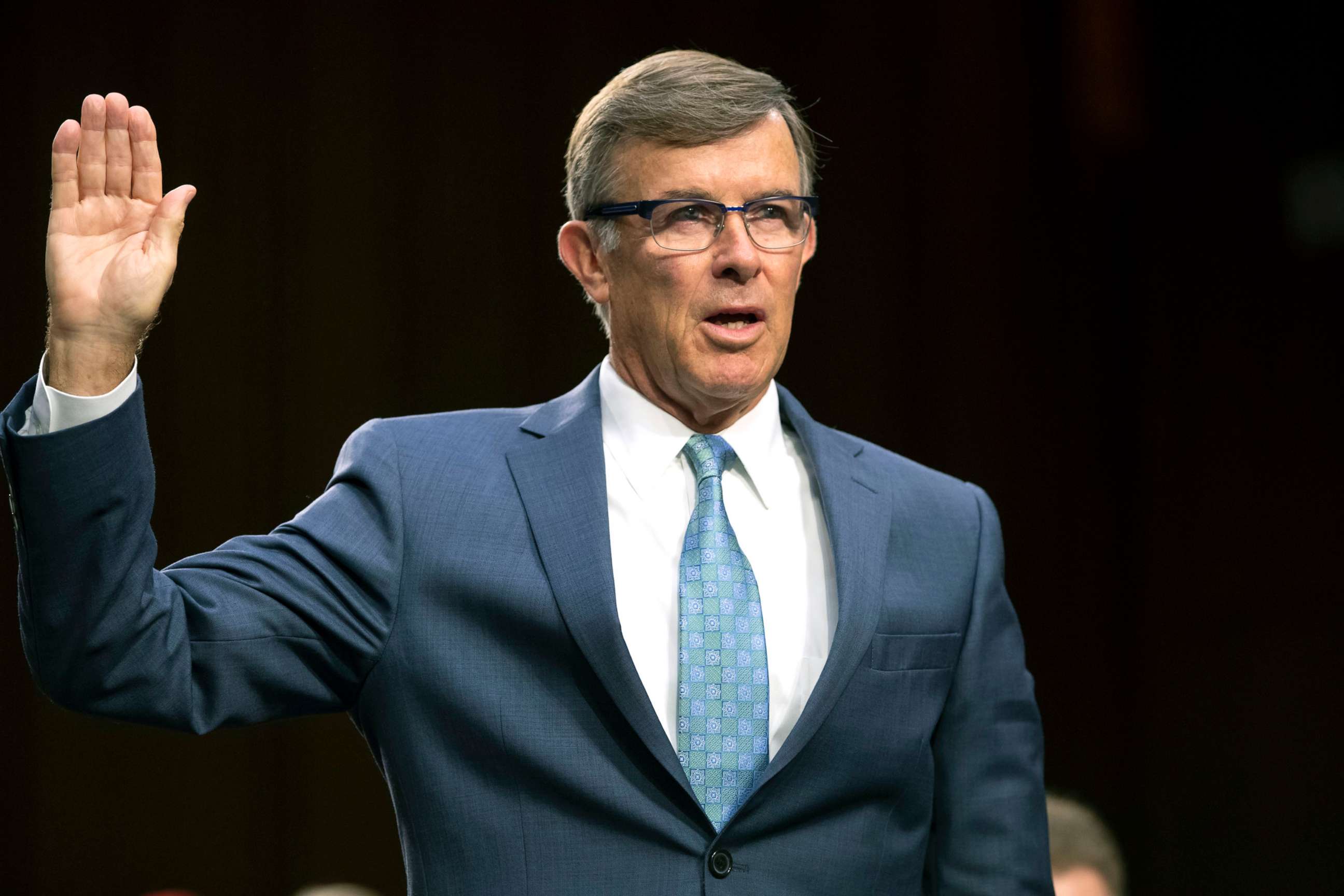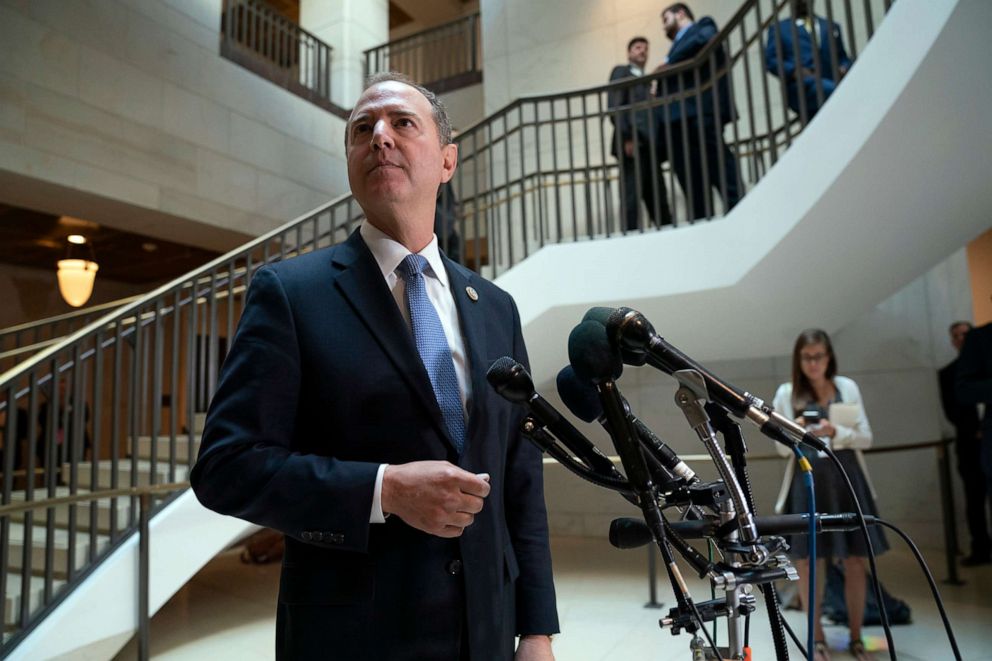Trump denies news report that 'promise' he made to foreign leader prompted complaint
The Washington Post says an intelligence community whistleblower complained.
President Donald Trump on Thursday reacted to a Washington Post story that a "promise" he made to a foreign leader had caused a whistleblower in the intelligence community to make a formal complaint, denying he had done anything improper and calling it "Presidential Harassment!"
Within hours the Democrat who heads the House Intelligence Committee suggested that Trump himself was behind an effort to keep Congress from learning the truth of what happened.

In a series of tweets Thursday morning, Trump called the Post account of what it said were "communications" with the foreign leader a "Fake News story," adding, "Virtually anytime I speak on the phone to a foreign leader, I understand that there may be many people listening from various U.S. agencies."
"Knowing all of this, is anybody dumb enough to believe that I would say something inappropriate with a foreign leader while on such a potentially "heavily populated" call. I would only do what is right anyway, and only do good for the USA!" he tweeted.
Trump had no comment on a New York Times report Thursday afternoon that the whistleblower complaint "was related to a series of actions that goes beyond any single discussion with a foreign leader," citing interviews and two officials it said were familiar with a private briefing given to lawmakers Thursday.
Even as Trump tweeted, the inspector general for intelligence community was on Capitol Hill being questioned on the matter behind closed doors by the House Intelligence Committee. He briefed members on the handling of the complaint but not the content and did not hand over the complaint, lawmakers said after the closed session.

House Intelligence Committee Chairman Adam Schiff, D-Calif., and other Democrats are angry that Acting Director of National Intelligence Joseph Maguire and the Justice Department have blocked the whistleblower complaint from being sent to Congress within the seven days they say the law requires. Schiff suggested that White House officials, including President Trump, also were involved and ultimately responsible for a complicated legal standoff playing out over the past several days.
"We do not have the complaint, we do not know whether the press reports are accurate or inaccurate about the contents of that complaint," he said. "But what I do know is this: if, in a matter within the jurisdiction of the Director of National Intelligence, you have an employee of that community, or a contractor or detailee, who follows the law and makes a complaint, and it is possible for the subject of that complaint to essentially quash the complaint or keep it from Congress, then this system is badly broken," Schiff said.

"I believe that there is an effort to prevent this information getting to Congress, and if the assertion is accurate that the Department of Justice has made and the DNI has affirmed, that this involves a potentially privileged communication, then at one level or another, likely involves the either president or people around him," he said.
Last week, Schiff issued a subpoena for the complaint, described as "of urgent concern" by the intelligence community's inspector general, Michael Atkinson. When McGuire failed to comply, Schiff said the DNI was doing so at the direction of a "higher authority."
Maguire originally was called to testify before the House Intelligence Committee Thursday but now has agreed to do so in public session Sept. 26.
The whistleblower, who has not been identified, is represented by Andrew Bakaj, a lawyer with Compass Rose legal group and a former intelligence officer. Contacted by ABC News, Bakaj declined to provide further comment.
An administration official confirmed to ABC News that the Justice Department's Office of Legal Counsel advised the Office of the Director of National Intelligence that it did not have to inform Congress of the whistleblower's complaint within seven days, because the complaint did not concern conduct by a member of the intelligence community.
The complaint involves conduct by someone outside the intelligence community, according to a letter to Schiff from Jason Klitenic, general counsel for the Office of the Director of National Intelligence, obtained by ABC News.
In the letter, Klitenic wrote "The complaint here involves confidential and potentially privileged matters relating to the interests of other stakeholders within the Executive Branch."
Klitenic also argued that the complaint doesn't meet the definition of "urgent concern" that would require the DNI to forward the matter to Congress.
In the Sep. 13 letter, Klitenic wrote that DOJ also agreed with the ODNI's assessment "that the complaint did not state an urgent concern," which he said further absolved ODNI of its legal requirement to inform Congress.
A DOJ official would not comment on whether Attorney General William Barr was ever directly involved in the matter.
A spokesperson for the ODNI did not immediately respond to requests for comment.

Schiff said he is consulting with the House legal counsel about next steps, and threatened to sue the administration over its refusal to turn over the complaint "to make sure national security is protected."
"This is not a situation in which we can afford to go through weeks or months of litigation in this court or that court. There is an urgency here I think the courts would recognize," he said.
"At the end of the day, we are determined to validate the whistleblower process to make sure that people can expose wrongdoing because what's at stake here goes well beyond this complaint and this president to whether any oversight is possible, any whistleblower is protected and we're determined to validate that authority of the Congress."
Democratic Sen. Richard Blumenthal demanded the whistleblower material, telling ABC News that the failure to hand over the information amounts to a "cover-up."
"That whistleblower material must be made available to Congress," Blumenthal said Thursday. "The failure to do so amounts to a cover-up and the whistleblower information has to be provided to Congress. Not just to the intelligence committee but to the Congress."
He added: "This information is of the utmost concern because it bears on our security as well the integrity of the intelligence community."
Sen. John Cornyn, R-Texas, said he expects to see the material at some point.
"I'm on the Intelligence Committee and I expect that I'll have a chance to see that, but I'm not going to talk about classified matters in public," Cornyn said.
There are numerous examples of the president's conversations with foreign leaders raising concerns -- in 2017, the president shared intelligence with Russian officials in the Oval Office and in 2018 it was reported that the president ignored a message -- "DO NOT CONGRATULATE" -- from national security advisers -- regarding Trump's call with Russian President Vladimir Putin after his election.
The Washington Post reported the complaint was filed on "Aug. 12, a date on which Trump was at his golf resort in New Jersey. White House records indicate that Trump had had conversations or interactions with at least five foreign leaders in the preceding five weeks.
The calls Trump made during the previous five weeks included Russian President Vladimir Putin, President of France Emmanuel Macron, Qatari Amir Sheikh Tamim bin Hamad Al Thani, President of Egypt Abdel Fattah Al Sisi, President of Ukraine Volodymyr Zelenskyy, and U.K. politician and now prime minister, Boris Johnson.
ABC News' James Meek and Mariam Khan contributed to this report.





